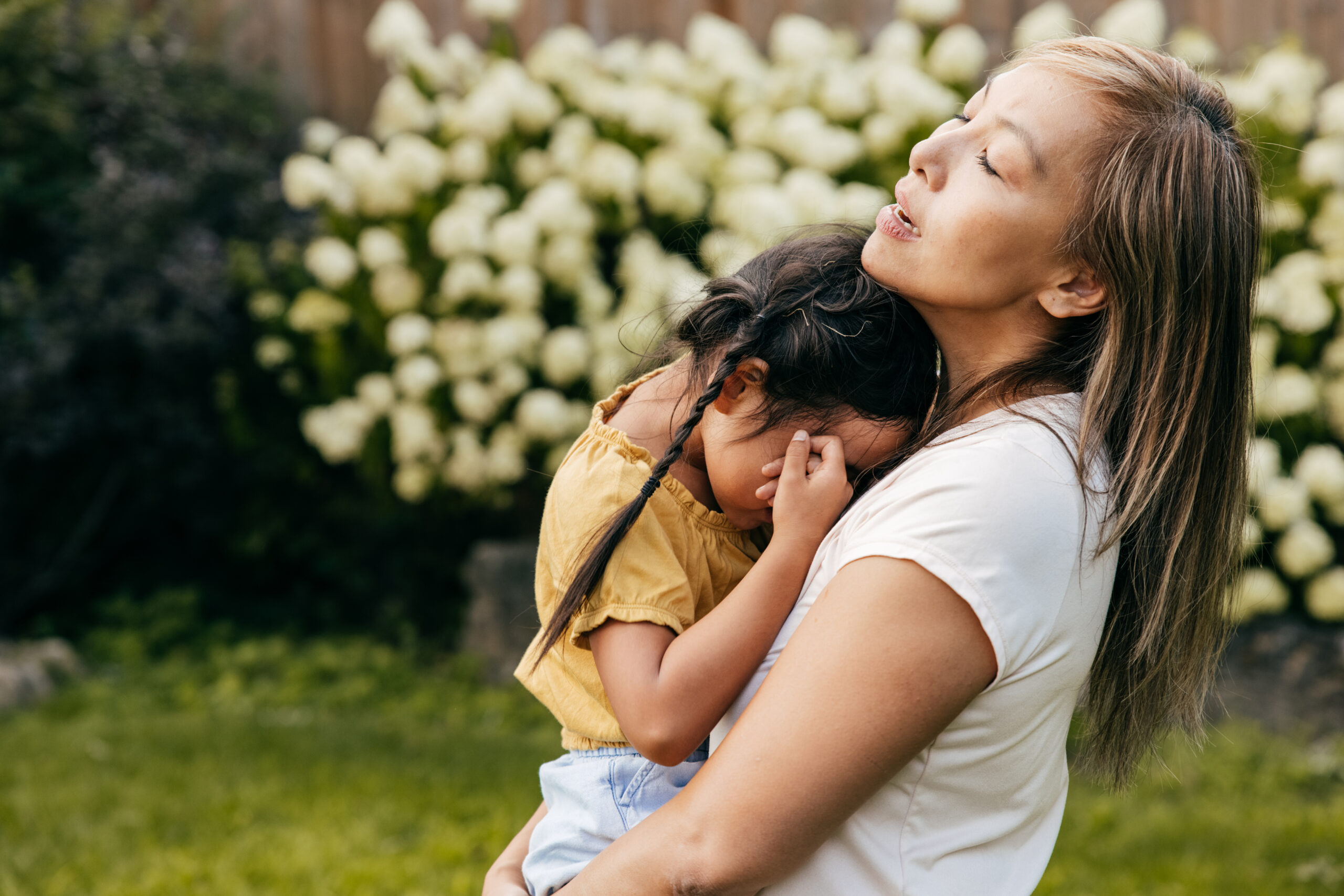
I was making a grilled cheese for my 8-year-old when it began. My heart started beating fast, like I’d downed seven espressos in the middle of a marathon. Before I could take a breath, an overwhelming nervousness engulfed me. I placed my palms on the countertop and concentrated on the coolness. I knew the drill. I was on the verge of a panic attack — and I had a pretty good idea as to why.
I had panic attacks during my senior year of college. They continued on and off for two years before they stopped. When they first happened, I remember sobbing and telling my boyfriend I must be dying. I couldn’t figure out any other logical explanation for a pounding heart that felt like it was jumping out of my chest. What came next was a heightened sense of dread followed up by an eerie feeling of nothingness. I had no idea what to do.
I made an appointment with my doctor, and he ran all the tests
They came back the same — physically I was OK. That’s when my doctor gently brought up the possibility of panic attacks. He told me they manifested differently for everyone but I had all the classic symptoms.
Over time, I put together the pieces of the puzzle that helped dispel my panicky triggers, like how important it was to give myself alone time to rejuvenate or to speak my truth, even if it led to conflict. I added in grounding techniques like deep breathing and meditation, and eventually they stopped — but I never forgot them.
Since I’d learned how to practice the self-care that eased my panicky moments, I assumed they were a part of a bygone era along with my Walkman CD player and rollerblades.
I was wrong
Although I haven’t experienced a full-blown episode (yet), they’ve started making themselves known again and I’m beginning to understand why. Life has finally slowed down after last year’s whirlwind schedule of my then-second grader’s remote learning, managing our household, and keeping up with my work — but now that I have a moment to myself, I can’t seem to rest. I’ve been so caught up in life’s fast pace, that I’ve forgotten how to pace myself. My brain was so focused on figuring out my kid’s new math, I could barely come up with an equation to ask anyone for help. Why? Because I was fine.
“Hi, honey, how are you?” my husband asked as he watched me send an email, remind our kid to do his homework for the gazillionth time, feed the dogs, and prep our dinner.
“I’m fine,” I answered without wondering if it was true
I said “I'm fine” more times than my son asks for snacks in a day. I pushed through feelings of unease because… well, I thought had to. I was overtasking and managing all the things. But as it turned out, it’s hard for me to strike a balance between being the ultimate caregiver while also asking for care from my family.
This new batch of panic attacks was a wake-up call
I’d clearly been putting myself last for far too long. The seeds of panic crept in because I was too late in taking care of myself. Now I’m taking steps to remedy that. I’m asking for help when those overwhelming feelings rise up instead of just powering through. I’m reminding myself that even a five-minute breathing break can do a world of good. But the biggest difference between this year and last year: I won’t be saying “I’m fine” unless I mean it.




